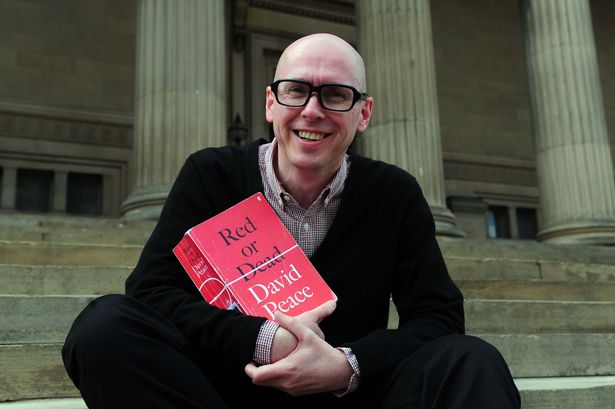
Whilst David Peace was in Liverpool recently, promoting his epic book on Bill Shankly, ‘Red Or Dead’ I bumped into him (OK, hustled him) outside The Quarter to answer a few questions. He graciously responded with the following answers, many of which are not as long as my convoluted questions. Thanks to David for replying so quickly.
Q
Like many people I came to your work via the Damned United which I thought was outstanding. I don’t really get enthusiastic about authors, especially British authors but I loved your take on a very specific era of British working class culture and heightening it into a Greek epic. Although the book was dark in its portrayal of Clough as a human being, do you feel the film of the book was played for laughs instead of delving into the psychosis of an obsessive man and a footballing culture that now appears utterly alien?
Thanks, Phil. Originally, the people who produced the film pitched it to me as being a homage to Lindsay Anderson and This Sporting Life, in particular; black and white, very dark and very gritty etc. I was excited because I felt that was very much in keeping with the book. But that isn’t the finished film and that was initially very disappointing. But that said, I think it is a bit churlish if writers moan about the films made of their books; they could always have not sold the film rights. And I have to say, the film brought people to my books who might not otherwise have read them. And so when people tell me they read GB84 after seeing the film of The Damned Utd then that makes me think more kindly of the film.
Q
Similarly with Red Riding Trilogy and the TV adaptation, the tone was a lot darker but again I didn’t feel the production captured the ‘horror’ (in its truest sense) of the books. Were you included in any of the production meetings and were you happy with the final result?
Well, I was much more involved with the Red Riding films; Tony Grisoni, the scriptwriter, talked to me a lot about his scripts and my books. Similarly, Andrew Eaton, the producer, involved me as much as was possible given that I live in Tokyo. And I do think they are great films and with some tremendous performances from an outstanding cast. And for example, and to be honest with you, 1974 is a book I have lot of problems with now; I think the violence in the book is gratuitous and overdone. But I think the film has a great deal more empathy and sympathy for the characters and, especially, the victims. So I actually prefer the film to the book. The great shame is that 1977 was never made. It was the best of the scripts and by far the darkest and I think it would have a cast a long shadow over the other three films. But, for various reasons, Channel 4 decided to fund only three films. But, hopefully, 1977 will one day be made as a stand-alone film.
Q
You grew up in the urban north at the same time as I did and one aspect of the culture of that time that I feel is always overlooked was the sexual depravity that got glossed over as ‘dirty old men’ instead of paedophilia and a popular culture saturated in titillation whether that was On The Busses, Benny Hill, Man About The House, even the Two Ronnies. The idea was that young teenage girls were attracted to fat middle aged men, even if they looked like Reg Varney. There was also the myth of the nympho housewife and although these stereotypes seem rather twee and comic, nevertheless it gave rise to men like Fred West and Peter Sutcliffe. Do you agree that rather than being a ‘laddish’ decade the 70s were actually deeply disturbing?
Absolutely; one thing I tried to capture and detail in the Red Riding books was the casual and ingrained misogyny – along with the corruption, racism and violence – of that time and place. To me, it is all part of the nature of power and the way it is always abused. And so the recent revelations – about men like Savile, for example – are not really revelations to most of us who grew up in that time and place.
Q
As a trade union activist during the miner’s strike, I couldn’t finish GB84 because I found it too upsetting. It got me angrier and angrier as I read it and found myself remembering the entire black propaganda machinations of the state (the BBC and the newspapers) being turned on the miners during that time. If anything made me realise that there were indeed (in the words of the queen) ‘dark forces at work of which we understand little) it was the way the miners were defeated. Yet even today after Hillsborough, after Savile, after the Hacking scandal, after Bloody Sunday enquiry and numerous historical cases of kids homes, young offending centres, churches and proven links between the police, the secret service, the politicians and the media the ‘establishment’ still call you a conspiratorial writer. You said on Newsnight that the miner’s strike was ‘unfinished business’ so you obviously feel that there’s’ still a lot to come out.
I know exactly what you mean about GB84, Phil. As I researched it and wrote it, I just felt angrier and angrier about what had gone on during the Strike. I mean, coming from a traditional Labour and Trade Union household, and living in Wakefield at the time, I supported the miners, wore my Cole Not Dole sticker and played in bands at benefits etc. But I don’t think, at the time, I fully comprehended the sheer scale of the forces ranged against the miners and also the sacrifices that families made. And so there was anger and there was also guilt, on my part, for not comprehending and doing more at the time. And it is still unfinished business because there still has to be a reckoning. And I hope the Orgreave Truth and Justice Campaign, inspired by the Hillsborough campaigns, will bring about that reckoning. And if people are interested in knowing more about the campaign and want to support it, have a look at their website: http://otjc.org.uk/
Q
I don’t think that all the documents relating to Hillsborough will ever be released, especially the ones that will point the finger at Thatcher and the Tory government. Now the IPCC enquiry s finding ‘new’ documents that the panel hadn’t seen but even now, I still think there are files that will have either been destroyed or locked away. I also predicted that Bettison would be the fall guy and that no -one in real positions of power would ever have to answer for what they did and said. He’s now being linked to all manner of covert police cover ups and dirty deals which makes me think he’ll spill the beans at some point (or be paid to keep quiet). Do you think that Bettison himself is worthy of a book?
You are absolutely right, Phil. And I’ve heard there are a number of books now being written about Hillsborough and Bettison. But I’d rather have a trial than a book and, as you say, I hope the prospect of prison might make the man finally blow the whole thing wide-open. But even trials and prison sentences can never be any kind of compensation or vindication for what the families have suffered. It is unforgivable.
Q
You obviously spend a lot of time researching your subjects then applying a psychological motivation for the characters whether that’s ego, greed, sexual gratification or ‘evil’ (if evil can ever be defined but sadistic delight in inflicting pain on others whether that’s Sutcliffe or Thatcher). How do you approach each book, do you gather your information and research and then give yourself a set amount of time to write it?
Generally, it takes about a year to research each book and then a year to write it.
Q
You seem to be very far away from the ‘Young British Writer’ set (although most of these ‘young’ writers are now well into their 40s) both geographically and stylistically. Comparisons have been made with James Ellroy and I can see elements of his style in your work but I think your choice of subject matter is way more grim than his vast global conspiracies – I have a theory (another theory) that NO ONE is clever enough to conspire at that level but basic self-interest, greed and incompetence, maintaining the status quo is at the heart of every law and war. I think you are more in the tradition of Kelman than Ellroy, would you say that’s fair?
Yes, I agree with you. 1974 was particularly influenced by Ellroy but, and particularly with Red or Dead, James Kelman is much more of influence these days. Not only in terms of his style but also the way in which he refuses to compromise his beliefs. I also agree with you on the nature of conspiracy; the conspiracy is capitalism, and all its structures and webs, the compromises and crimes it forces most of us to collude and participate in, not men in raincoats, smoking cigarettes in the shadows.
Q
With Red or Dead you return to both football and iconic managers of the 70s. Were you nervous about returning to this area or did you feel that with Shankly, there was enough scope to tell a more optimistic and positive story of one man’s obsession with the game.
Yes, I didn’t want to write The Damned Utd, II. And I did feel, for a long time, that while I had tried to highlight the corruption and crime in society, I had not really offered any alternative. For me, Bill Shankly does represent a different way of thinking, a better way of living. And so that was my hope for the book. Particularly thinking of kids like my own, who are 13 and 16, and who have gone through their entire school lives never once hearing the word Socialism.
Q
I met Shankly with my dad once outside Anfield and he did possess this messianic aura. Grown men felt blessed to be in his company and there was a kind of Puritan work ethic that drove men like Shankly, Busby and Stein. With the retirement of Ferguson who was perhaps the last of that breed, the British game now seems to be controlled by dull pragmatists and technicians. At board level, old school spivs like Louis Edwards, Ken Bates, Ron Noades, Doug Ellis and Peter Swales have been replaced by global franchise gangsters for whom each club is merely an entry in a portfolio. Yet football has never belonged to the fans, footballers and manager shave always been expendable and chairmen and administrators have always been incompetent and corrupt. Gazprom United will no doubt rule world football soon but is this necessarily a bad thing?
One thing that struck me, again and again, researching and writing Red or Dead was, as you say, that football has never belonged to the supporters, the players or the managers. The clubs have always been owned by the men with the brass. But what also struck me was the way in which men like Shankly, Stein and Busby – coming from backgrounds that were much harder and poorer than most of us (not all of us) will ever know – through their sheer bloody-mindedness and hard work, their sacrifices and struggles, taking on the owners and the directors, created clubs in their own and the supporters’ image. And even in times as dark as these, I still do find that inspirational.
Thank you, Phil. Great questions. Sincerely, David



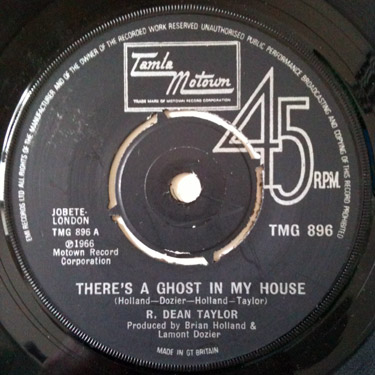


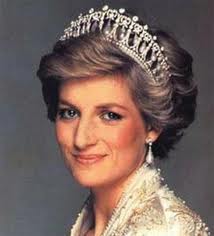

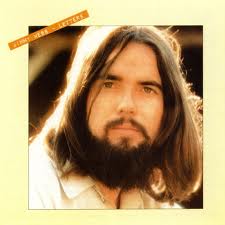

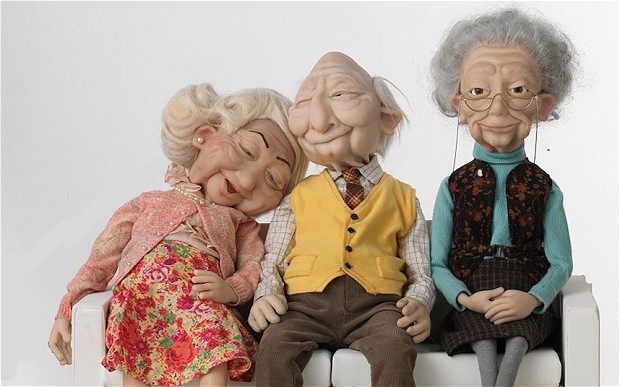
You must be logged in to post a comment.